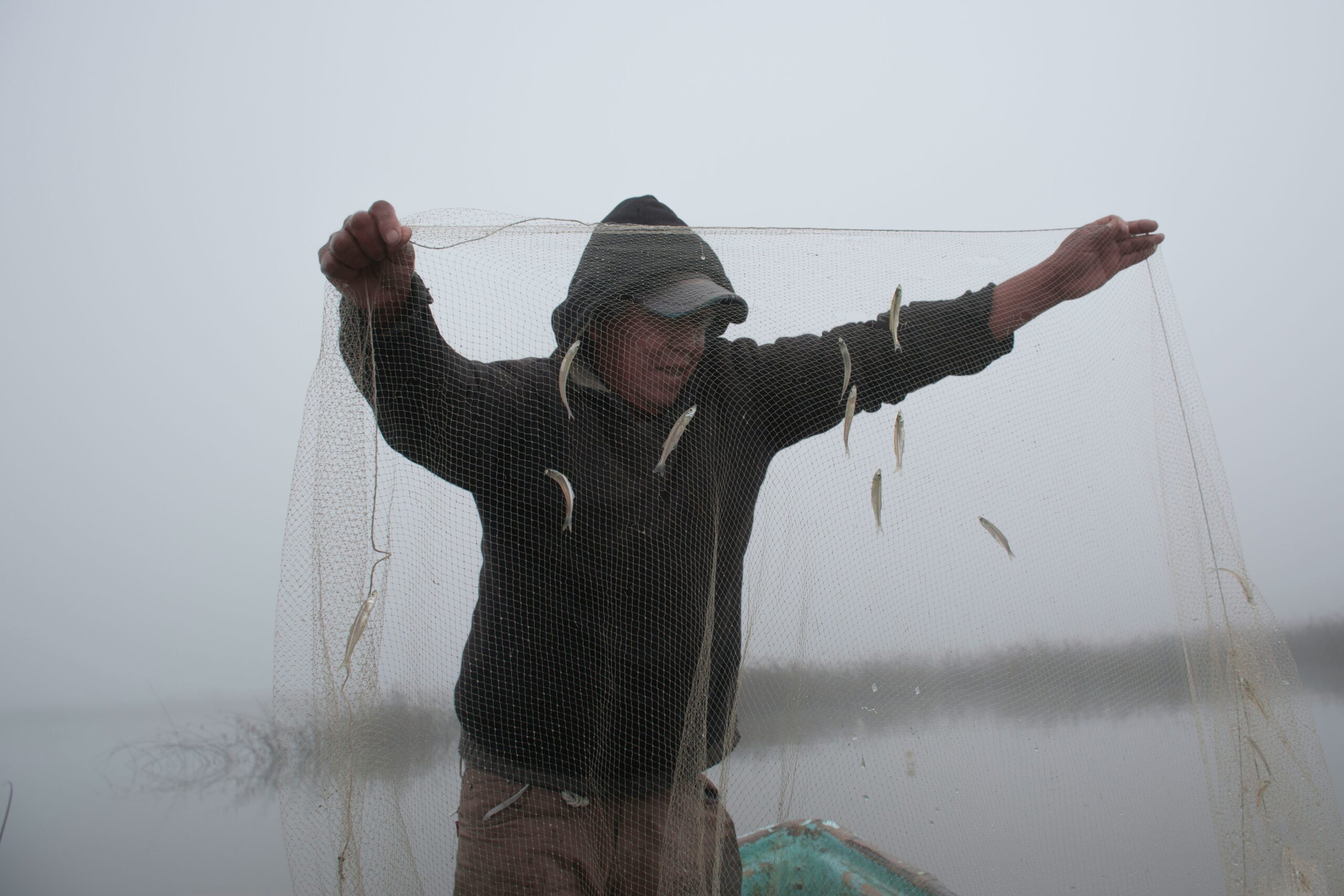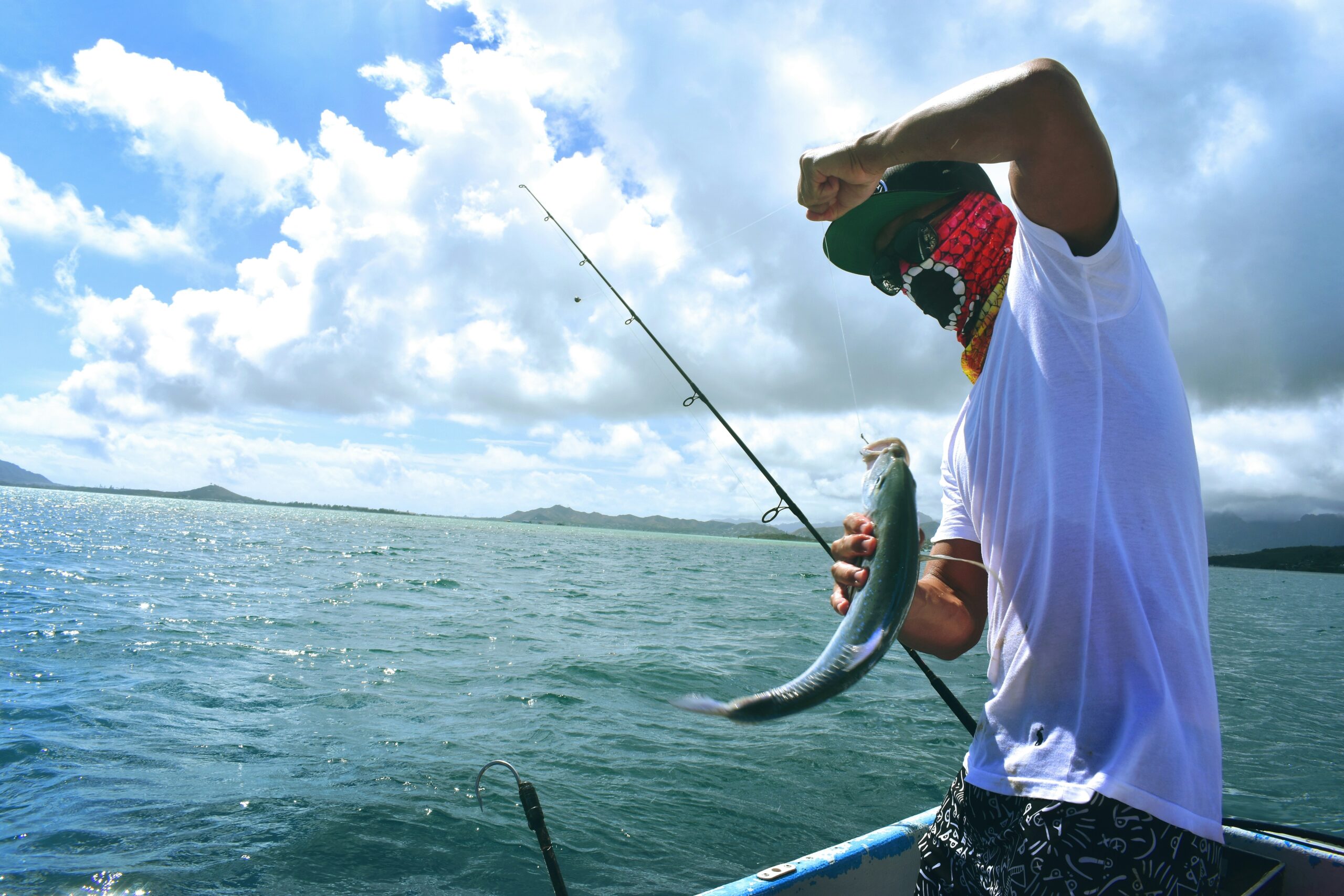Difference Between Fishing and Catching: Mindset, Techniques, and Why the Journey Matters Most
Whenever I talk to fellow anglers or share stories by the water, I notice a simple mix-up—people often use “fishing” and “catching” like they mean the same thing. But anyone who’s spent hours waiting for a bite knows there’s a big difference between these two. Fishing is about the experience—the quiet moments, the anticipation, and the connection with nature.
Catching, on the other hand, is that thrilling moment when patience pays off and you finally reel one in. I’ve learned that understanding this difference changes the way I approach every trip. Whether I come home with a full bucket or empty hands, it’s the journey and not just the result that keeps me coming back.
Understanding the Basics of Fishing and Catching

Fishing describes the process of pursuing fish for recreation or food. I use fishing techniques like casting, trolling, and fly fishing to attract species such as bass, trout, or salmon. Catching only occurs when I successfully hook and land a fish during a fishing attempt.
Fishing relies on gear, timing, water conditions, and patience. I often spend hours selecting spots, setting bait, and observing nature, whether or not I catch any fish. Catching focuses on the moment when skill, timing, and preparation result in a landed fish. Some days, catching happens quickly, while on others, fishing becomes the primary activity.
I connect with nature through fishing, enjoying the anticipation and calm of waiting for fish activity. Catching delivers immediate gratification and test results of my choices regarding bait, location, and technique.
Comparison Table: Fishing vs. Catching
| Aspect | Fishing | Catching |
|---|---|---|
| Definition | Engaging in pursuit | Successfully landing fish |
| Emphasis | Process, relaxation | Outcome, excitement |
| Gear Used | Rods, reels, bait | Landing nets, hooks |
| Time Spent | Variable, often extended | Brief, at moment of strike |
| Satisfaction Source | Experience, tranquility | Achievement, result |
| Examples | Casting lines, waiting | Reeling in trout, bass |
The Philosophy Behind Fishing Versus Catching
Contrasting philosophies define fishing and catching. I notice fishing centers on process, while catching emphasizes outcome.
Patient Process Versus Instant Results
Patient process marks fishing, since it involves waiting, observing, and adapting. I spend significant time reading water patterns, adjusting bait, or simply watching the surface for subtle movement. In contrast, instant results characterize catching, since landing a fish takes only seconds or minutes after a strike.
| Aspect | Fishing (Patient Process) | Catching (Instant Results) |
|---|---|---|
| Timeline | Hours to days | Seconds to minutes |
| Key Activities | Casting, waiting, observing, adapting | Reeling, netting, landing |
| Emotional Tone | Calm, contemplative, hopeful | Excited, triumphant, intense |
| Gear Adjustments | Frequent, example: changing lures | Minimal, example: quick reeling |
Enjoying the Experience Versus Focusing on Outcome
Enjoying the experience embodies the philosophy behind fishing. I find satisfaction in moments like sunrise over the water, the sound of casting, and the rhythm of waiting. Focusing on outcome drives catching, since attention shifts to fish landed and numbers tallied.
Examples of Experience Versus Outcome Focus:
- Fishing: Relishing quiet mornings, observing wildlife, developing patience, learning water conditions.
- Catching: Celebrating each caught fish, counting results, pursuing bigger or rarer species.
Techniques Involved in Fishing and Catching

Fishing and catching use distinct techniques shaped by their objectives. I approach each with tailored skills and specialized equipment to maximize the experience and outcome.
Skills and Strategies
Fishing strategies focus on patience, observation, and adaptability. I use timing, water reading, and lure presentation to attract target species like bass and trout. Catching techniques depend on speed, precision, and reflexes during the actual strike. Setting the hook, controlling the fight, and landing the fish require focused effort.
Comparison of Techniques
| Aspect | Fishing Example | Catching Example |
|---|---|---|
| Skill Focus | Casting accuracy | Quick hook set |
| Strategy | Changing bait types | Reacting to strikes |
| Time Investment | Prolonged patience | Short bursts of action |
| Adaptation | Adjusting locations | Rapidly reeling in |
Tools and Equipment Used
Fishing employs varied gear suited to location, species, and method. I use rods, reels, tackle boxes, bait, and electronics like fish finders for preparation and exploration. For catching, I rely on landing nets, gaffs, and lines with proper test strength to secure fish efficiently when opportunity strikes.
Fishing and Catching Gear Overview
| Gear Type | Fishing Purpose | Catching Purpose |
|---|---|---|
| Rod & Reel | Casting, retrieving | Fighting hooked fish |
| Bait/Lures | Attracting fish | Triggering strikes |
| Electronics | Locating fish | N/A |
| Nets/Gaffs | N/A | Securing catch |
| Tackle Box | Organizing gear | Quick gear access |
The Role of Mindset in Fishing and Catching
Mindset directly shapes my experiences during fishing and catching. When I focus on fishing, I stay patient and observant, drawing satisfaction from the process, not just the end result. My attention shifts to the environment, weather, and technique, which all contribute to longer-term engagement and joy.
When my goal centers on catching, I stay alert and driven by anticipation. The moment a fish bites, my mindset becomes reactive and goal-oriented, channeling energy into landing the catch instantly. This shift in perspective leads to a brief, intense burst of excitement rather than sustained contentment.
Table: Mindset Differences—Fishing vs. Catching
| Aspect | Fishing Mindset | Catching Mindset |
|---|---|---|
| Focus | Process and experience | Outcome and success |
| Emotional State | Calm, patient, reflective | Tense, excited, focused |
| Satisfaction Source | Journey, learning, connection | Achievement, action |
| Approach | Adapt, wait, observe | Act swiftly, react fast |
Table: Importance of Mindset in Angling (Survey Data)
| Value Appreciated | Anglers (%) |
|---|---|
| Process and Experience | 68 |
| Catching and Outcome | 32 |
Cultural and Social Perspectives
Fishing and catching reflect distinct cultural values across regions and communities. Fishing, in local cultures like those in rural Minnesota and Maine, often serves as a family bonding activity, with generational traditions emphasizing patience, storytelling, and respect for waterways. Catching, by contrast, gets prioritized in tournament settings or by groups seeking immediate results, such as competitive bass angling clubs or commercial fishing operations on the Gulf Coast.
Community events illustrate the difference as well. Fishing derbies and “take a kid fishing” days spotlight the full experience, rewarding participation, environmental stewardship, and patience. Catch-focused events, including local fishing tournaments or ice fishing contests, award only the heaviest or highest number of fish landed, elevating competitive spirit and the thrill of the catch.
The language people use in fishing circles also reveals these differences. Stories about fishing often center on the peacefulness of the water, the challenge of tricky weather, or memorable moments with friends. Stories about catching focus on excitement, skill, and the adrenaline rush of landing difficult fish.
Table: Community Attitudes Toward Fishing vs. Catching
| Aspect | Fishing | Catching |
|---|---|---|
| Typical Social Setting | Family gatherings, outings | Tournaments, contests |
| Conversation Themes | Nature, tradition, patience | Achievement, skill, excitement |
| Celebration Methods | Shared meals, photo sharing | Weigh-ins, trophies, prize money |
| Generational Emphasis | Storytelling, mentoring | Competition, records |
| Typical Role Models | Elders, conservationists | Champions, record holders |
Conclusion
My time on the water has taught me that fishing and catching offer two distinct kinds of fulfillment. Whether I’m casting a line for the calm or chasing the thrill of a catch, both experiences shape how I remember each trip.
It’s not just about what I bring home but about the stories I share and the moments I treasure. Every outing becomes unique depending on what I’m seeking—serenity, excitement, or a bit of both. That’s what keeps me coming back to the water every chance I get.
Frequently Asked Questions
What is the difference between fishing and catching?
Fishing refers to the overall experience of being on the water, enjoying nature, and patiently trying to entice fish. Catching specifically describes the moment when a fish is hooked and brought in. Fishing centers on the journey, while catching focuses on the outcome.
Why is fishing considered more about the experience than the result?
Most anglers value the relaxation, scenery, and time spent with others while fishing. The process brings tranquility, connection with nature, and patience, which is why fishing is often remembered for the experience rather than just the catch.
What techniques are commonly used in fishing?
Popular fishing techniques include casting, trolling, and fly fishing. Each technique requires different skills, gear, and approaches depending on the water conditions, target species, and personal preference.
How do the tools differ between fishing and catching?
Fishing utilizes varied rods, reels, lines, and bait suited for species and locations. Catching typically involves specialized gear like landing nets or gaffs, used to secure the fish once it’s hooked.
How does mindset impact fishing and catching?
A fishing mindset values patience, observation, and adapting to the environment, leading to a more relaxed experience. Alternatively, a catching mindset emphasizes speed, precision, and achieving quick results, often leading to excitement and competition.
Are there cultural differences between fishing and catching?
Yes, some cultures see fishing as a family or community bonding activity focused on storytelling and nature. Catching is often highlighted in competitive events or where success is measured by the number or size of fish landed.
Why do many anglers prefer fishing even without catching anything?
Most anglers enjoy being outdoors, unwinding, and bonding with friends or family. The overall journey is often considered more memorable and rewarding than simply bringing home a catch.
How do family and competitive events differ in focus?
Family fishing events usually emphasize participation, shared experiences, and environmental awareness. Competitive events, like tournaments, reward the number or size of fish caught, prioritizing quick results and skill.
How do fishing trips shape lasting memories?
Fishing trips are often remembered for peaceful moments and camaraderie, while memorable catches provide stories of excitement and achievement. Both experiences contribute to meaningful memories shaped by personal or cultural values.
